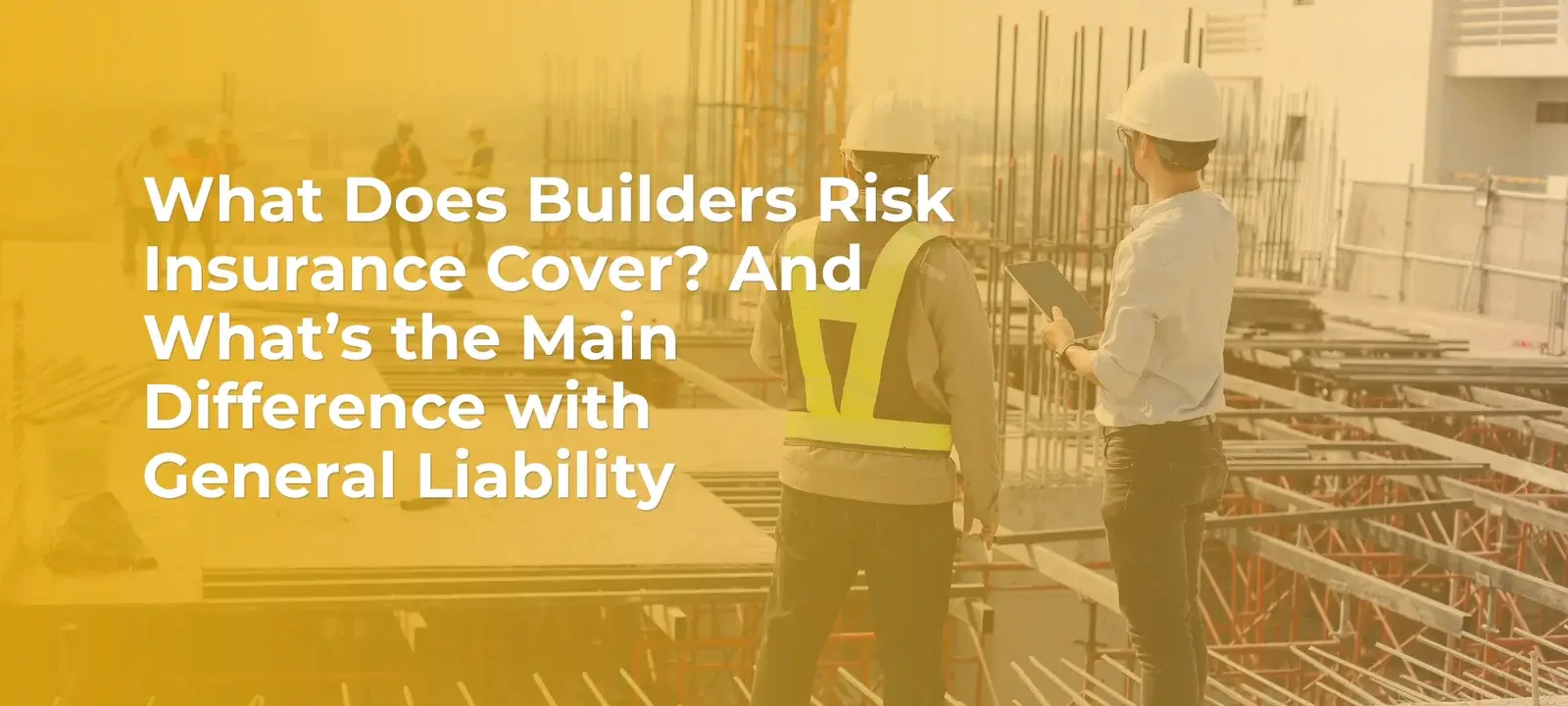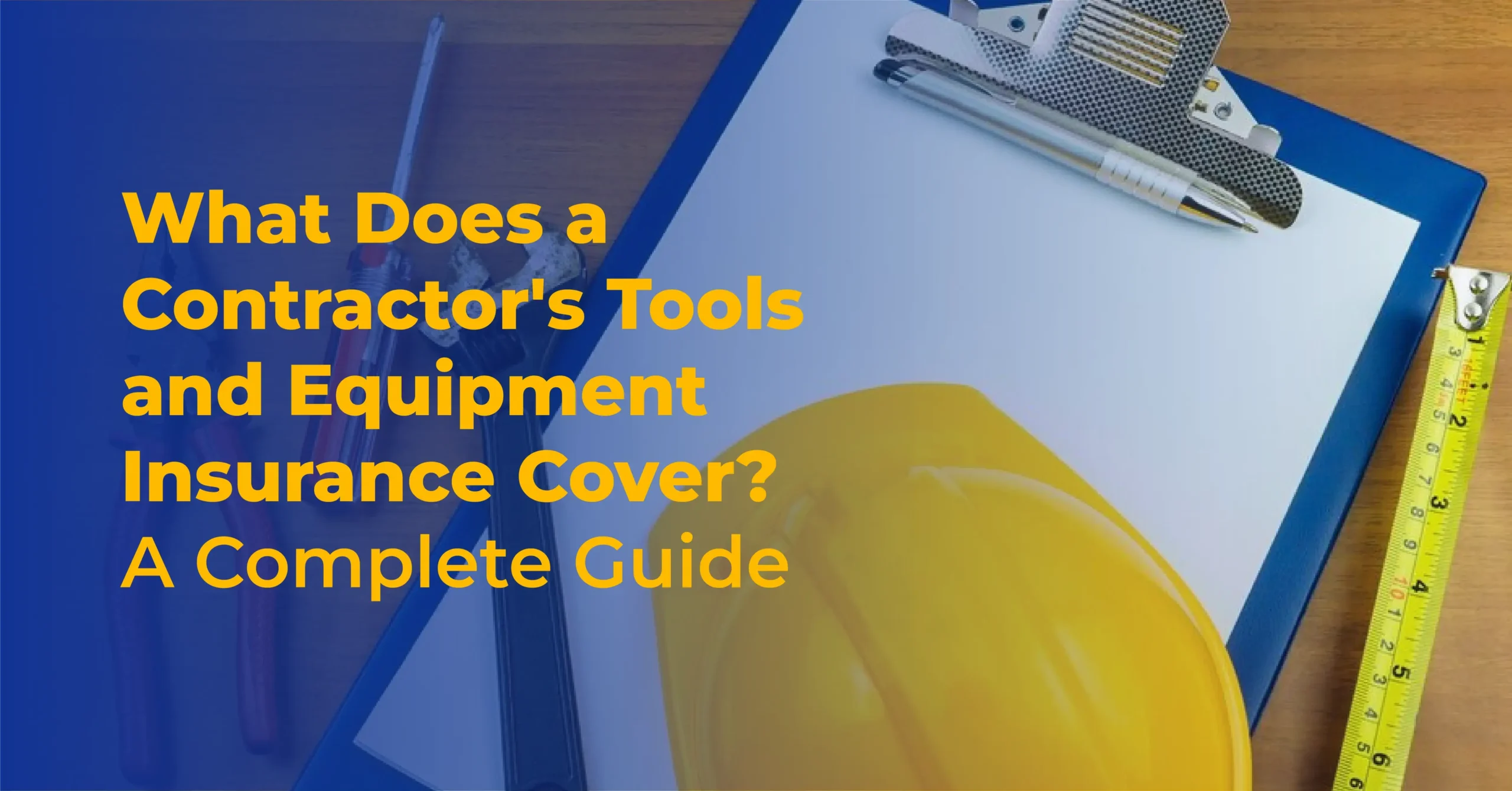As a general contractor in Florida, you are aware that insurance is important, however, there are times when construction insurance coverage is overpaid or doesn’t covers everything important. We all think of a good builder or trade contractor who has stalled or gone out of business because they did not adopt sound accounting and risk management systems for their growing business.
Many contractors shop for the lowest premium, thinking they are saving money. Cheaper is not always better when it leads to a policy that fails to cover important risks and leads to major losses. Did you know that nearly 40% of small businesses never reopen after a disaster due to insurance? That is a rude awakening, right? Additionally, as a grading contractor, you know it is an especially hazardous profession with a great deal of risk. But don’t worry, we are here to help you avoid the top insurance mistakes that can potentially sink your business. Let’s dive right into the top five mistakes and how to avoid them like a pro.
Why Insurance Mistakes Happen (Even to the Pros)
Even experienced contractors can make mistakes about insurance. Not because they are negligent, but because construction insurance in Florida can be complex. Between the subcontractors and different crews, changing job sites, and urgent schedules, it’s easy to miss a little detail and later on find out it is going to be a bigger problem. Many contractors rely on past experience or what was ”good enough” and don’t realize the rules and risks have changed.
One of the most common mistakes we see? Thinking you’re completely insured when you’re not. Maybe a subcontractor’s insurance certificate had expired, or someone mistakenly thought general liability covered tools, equipment, or accidents (Spoiler alert: it doesn’t). Or you’ve been running through a PEO without realizing it doesn’t cover your 1099s. These holes won’t always be visible until it’s too late, like during an audit or after a claim is denied. And in Florida, where there’s so much weather risk and lawsuits, that can wallop your business.
At the end of the day, insurance mistakes happen because contractors are focused on getting the job done, not decoding policy language. That’s completely understandable. The good news? Most of these mistakes are fixable with the right advice. A quick review with someone who knows construction insurance (and Florida law) can save you from major headaches down the road. Because when your coverage matches your business, you’re free to focus on what you do best, building.
The Cost of Getting It Wrong: Fines, Delays, and Lost Jobs
To maneuver through the construction sector in Florida requires compliance with insurance regulations. If you don’t follow the law, it can lead to expensive fines, delays in projects, or the revocation of licensure to work in the Industry. For instance, if you are not carrying the proper workers’ compensation insurance, you could receive a stop-work order and put a halt to international work until you are compliant with the law. Work stoppages not only create delays in an anticipated timeline, but they also result in significant losses due to labor costs and jeopardize your company’s reputation.
Apart from regulatory penalties, operating without proper insurance allows contractors to take on a huge amount of financial and legal risk. In case of an accident or damage to property, an uninsured contractor could be personally liable for medical bills, repair of damages, and legal fees. This is a potentially crippling amount of liability that would threaten the financial well-being of the business, even the owner’s well-being in terms of bankruptcy or out of business, ever. Contracting without a license is also an extremely serious Florida state offense; the initial, unlicensed, contractor is liable for a misdemeanor that carries an up to $1,000 fine and/or one-year jail term, and if the contractor had ever been there on previous visits, it would more likely be a felony and would likely carry increased penalties including incarceration.
Also, disputes over insurance claims can result in bad faith actions, wherein an insurance or a casualty company can be held liable for unfairly denying a claim or failing to settle on reasonable terms. Bad faith lawsuits are usually expensive and time-consuming, and take away from the business operation. A recent study estimated that third-party bad faith claims in Florida’s auto insurance system (i.e., liability coverage) cost $7.6 billion in claim expenses over 12 years. Because of the risk of conflict regarding insurance claims for construction businesses, it is important that there is complete coverage, and the insurance policy is read and understood.
How to Spot Coverage Gaps Before They Hurt You
There is a need to comprehend the intricate Florida construction insurance coverage to be in a position to save contractors and their businesses from unexpected risks. One of the major issues is gaps in coverage, which expose contractors to significant financial risks. Often, exclusions and endorsements on policies limit the type of work, material, or project location that is excluded, and, lacking a thorough understanding of such exclusions, contractors may be left without coverage in areas of absolute priority that could expose them to legal and financial jeopardy.
The second most common error is underestimating the amount of coverage that will be needed. Construction endeavors are often capital-based, and minimal insurance coverage limits can bring about out-of-pocket expenses that will be costly to a business. Regular assessment and adjustment of policy limits in proportion to the current project size and complexity are necessary. In addition, certain higher-risk operations, such as foundation work or excavation, may require special coverage. If these topics are not given attention, extensive coverage gaps are possible, increasing contractors’ vulnerability.
To counter these risks, Florida contractors need to actively involve insurance experts in carrying out thorough policy reviews. This collaborative effort ensures that all exposures are recognized and properly addressed. Through awareness and watchfulness, contractors can effectively seal coverage gaps, providing solid protection against the complex risks that come with the construction business.
Working with Subs? Here’s Where Most Contractors Slip Up
In the building trade, it is part of doing business to deal with subcontractors; in Florida, it can be daunting because projects are handed over in a hurry, along with several trades. Although it is a natural part of the business, dealing with subcontractors can be frustrating. Misunderstanding and a lack of proper expectations or follow-through will cause more than frustration; it will cause insurance and liability issues. One of the biggest mistakes a contractor to make is to merely “assume” without evidence of a subcontractor’s insurance. That single assumption costs when the issue occurs on the job.
Florida law is clear: all subcontractors must carry valid workers’ compensation insurance or a state-approved exemption. If a sub doesn’t have coverage and there’s an accident, the hiring contractor can be held fully liable. That means paying medical expenses, fighting off lawsuits, and dealing with delays that can get your whole project off schedule. And the penalties are no joke. The Florida Division of Workers’ Compensation can impose a stop-work order on the spot. Not a speed bump in the road, but a full stop until the situation is corrected. Add in potential fines, back pay, and even court costs, and that unmonitored certificate suddenly is a tremendous liability.
The answer is both straightforward and effective: stay consistent and proactive. Always ask your subs for recent proof of insurance and have a method for tracking expiration dates. Don’t trust verbal confirmation; document everything. You can work with an insurance advisor who knows the construction industry in Florida, which can also make a big difference. They can help you remain compliant, avoid gaps, and protect your business from surprises. A little planning at the front end will save you time, money, and a lot of stress down the road.
Simple Fixes That Can Save You Thousands in the Long Run
The risks of construction insurance in Florida can be overwhelmingly expensive, with even small mistakes costing contractors thousands of dollars. One of the most common and costly mistakes is working without coverage, which is required for licensed contractors in Florida – general liability and workers’ compensation. Not keeping coverage can lead to stop-work orders, project shutdowns, and large fines. None of those are merely inconveniences – they are costly. Not only are you missing revenue, but payments are delayed, and your reputation is damaged, which may impact future work. If that wasn’t enough, working without coverage or working under expired coverage can incur penalties of $1,000 per day, criminal charges, and/or license suspension. These types of mistakes are not merely costly; they can put you out of business.
The good news? Most of these setbacks are completely avoidable with a few proactive steps. Start by scheduling a quarterly policy review, your coverage should grow with your business, especially if you’re hiring more subs or taking on bigger jobs. Always verify your subcontractors’ insurance status and keep their COIs (Certificates of Insurance) on file. Don’t assume your general liability policy has everything covered; make sure you have builder’s risk, workers’ comp, and, if needed, professional liability too. And on claims, document everything and don’t be afraid to seek the counsel of an attorney if something doesn’t smell right. Insurers in bad faith can be prosecuted, but you must have the proper documentation to protect yourself. These good practices, staying compliant, staying current, and staying organized, can create or destroy a successful business v. a business swamped with delays, audits, and litigation.
Conclusion
Insurance is the basis for your construction project. Being properly covered will safeguard you, your company, and your company’s reputation, and you will not have to worry about licensing problems or even lawsuits that are more expensive than the job itself.
The truth is, your insurance should be working as hard as you are. Whether you’re expanding your business, managing larger projects, or just trying to stay compliant, a smart insurance strategy is one of the best investments you’ll ever make.
CTA
Ready to protect your business the right way? Review your current coverage and make sure you’re not assuming additional, unnecessary risk. Contact Lite Speed Insurance today for a no-pressure review or a fast, tailored quote that suits your business. We’ll assist you in building with confidence from the ground up.
FAQs
1. What’s the most prevalent insurance mistake Florida contractors make?
Not having the right type of coverage or too little of it. General liability is frequently assumed to be sufficient by many contractors, but, based on your operations, you might also need workers’ comp, builder’s risk, or inland marine.
2. Do I need workers’ comp if I only have a few employees?
Yes. In Florida, you are required by law to carry workers’ comp if you have even a single W-2 employee. Electing out of it can lead to fines and stop-work orders.
3. How do I know if my subcontractors are properly insured?
Ask for a certificate of insurance and check the dates and coverage. If they’re not insured or have an exemption that doesn’t apply, you could be liable.
4. Can I apply my homeowners or general liability policy to a job?
Terrible idea. Homeowners’ insurance won’t cover damage at the jobsite, and general liability is limited. That’s why you have specialized policies such as builder’s risk.
5. What if I underreport payroll to reduce premiums?
It may save you money in the short term, but if you get audited (and you will), you will have back charges, penalties, and a possible higher rate going forward.
6. When would using a PEO be risky for contractors?
PEOs work well for payroll and administrative tasks, however, they do not always cover your 1099 subs or high-risk trades. If you’re not careful, gaps can creep in.
7. Is one policy sufficient if I operate in multiple job sites?
Not always. Some policies are job-specific. If I’m running multiple projects simultaneously, blanket or reporting policies might be more effective.
8. How often should I review or update my insurance coverage?
At least annually, or anytime your business changes. Beginning new projects, hiring new employees, or hiring more subs are valid reasons to reassess.
9. What is one small detail that could have a big impact on my coverage?
Keeping good records. Certificates, payroll logs, and project timelines alleviate confusion in claims and audits.
10. How do I avoid these mistakes, without being an insurance expert?
Engage a qualified advisor who understands construction law. They will ensure you are compliant, avoiding gaps and ultimately find the right policy, without pulling your hair out.
Let’s Discover More About Litespeed
How Much Does Builders Risk Insurance Cost in Florida?
Subcontractor vs. General Contractor: What’s the Key Differences



